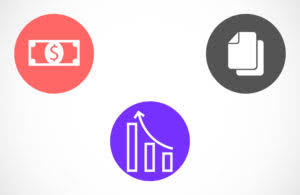
Menu

Creating an annual hotel budget is a crucial financial planning exercise that sets the foundation for achieving strategic goals and objectives. In this article, we will explore what a hotel budget entails, key steps in the budgeting process, best practices for format and preparation, and tips shared by hoteliers on effective budget allocation. A plan helps hotel managers make informed decisions, allocate resources effectively, and improve profitability. The hotel industry is highly competitive, and hotels must maximize revenue while minimizing costs to stay profitable.

This estimation step is important as it gives you an idea of what your budget forecasting is going to look like. In this type of budget forecasting, goals and KPIs are set first by the hotel or property owners/managers. Then, a realistic budget will be projected based on the expenses that would be required to accomplish https://www.bookstime.com/blog/cares-act-step-by-step-guide-for-small-businesses the determined objectives. Especially in a dynamic industry like hospitality, where your operations and campaigns change from time to time, hotel budgeting and forecasting are significant.

When creating your budget, hotel budget Santos has found it is important to share context around the numbers. Guidance like this is helpful for team leaders, especially those who are new to the process, Lund advises.

A hotel QuickBooks budget is a detailed financial plan outlining the projected revenues, expenses, and profit margins for a hotel over a fiscal year. It serves as a roadmap for managing the hotel's financial resources and helps in setting financial goals, controlling costs, and optimizing revenue. These numbers help hotel managers to allocate resources efficiently and plan for the next year.

Creating an effective hotel budget plan requires input from various stakeholders, including department heads, finance teams, and executive leadership. Each stakeholder brings a unique perspective and expertise to the budgeting process. Occupancy rates are a crucial factor in budget planning because they impact revenue, staffing, and inventory management. Hotels need to track occupancy rates to predict demand and adjust pricing and staffing levels accordingly. Analyzing historical data is one of the most effective ways to generate accurate hotel forecasts. Accurate budgeting and forecasting enable hotels to anticipate risks and develop contingency plans.
![]()
This is great for comparing apples to apples but you should expand your compset in this exercise to get more inspiration for your operating budget in the upcoming year. In addition to competitor data, you’ll want to incorporate local demand trends into your budget. Ensure your budget reflects market demand on holidays and during major events like conferences, sports games, graduations, concerts, and more. Your local Convention and Visitors Bureau is a good resource for this information. Even if you’ve worked in the market for decades, event schedules change, so it’s a good idea to check the local event calendar every year to ensure your budget reflects the most current demand drivers.
Eva has over a decade of international experience in marketing, communication, events and digital marketing. When she's not at work, she's probably surfing, dancing, or exploring the world. Once you’ve made all necessary adjustments, finalise the budget and distribute it to department heads for implementation. Ensure that everyone understands their budgetary responsibilities and performance metrics. From there, Lund recommends getting into the details with zero-based budgeting as described above. From this perspective, you might tell your teams that you expect to increase room revenue by at least 7% based on what you heard from your revenue manager.